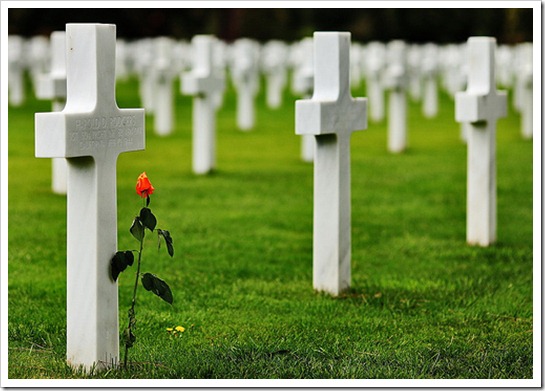
“Where Have All The Flowers Gone?”
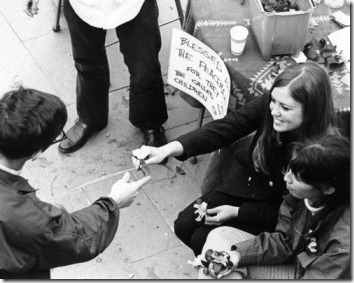 As I fade into the autumn of my life, I find myself becoming increasingly depressed on Memorial Day, about what it represents and what it has become. At this point it is common to lament the true meaning of the day being largely ignored in our haste to start the first barbecue of the season and take advantage of a Memorial Day sale. But that is not what troubles me this day. It’s the day itself and all that it represents and all that it has become. Each year, it seems, there is a larger celebration of our honored dead, people who have paid the supreme cost to ensure our freedoms. That’s how the day is always billed and what it has come to represent, a huge, monumental thank you for those who laid down their lives for our freedoms. In more recent years it has become common to also extend a hearty thank you for those on active service, and every now and again, an old codger like me who served at a peacetime post gets a nod of thanks. Although I never saw combat, I was part of the Cold War Warriors stationed in Berlin just a few short years after the Berlin Wall was first erected.
As I fade into the autumn of my life, I find myself becoming increasingly depressed on Memorial Day, about what it represents and what it has become. At this point it is common to lament the true meaning of the day being largely ignored in our haste to start the first barbecue of the season and take advantage of a Memorial Day sale. But that is not what troubles me this day. It’s the day itself and all that it represents and all that it has become. Each year, it seems, there is a larger celebration of our honored dead, people who have paid the supreme cost to ensure our freedoms. That’s how the day is always billed and what it has come to represent, a huge, monumental thank you for those who laid down their lives for our freedoms. In more recent years it has become common to also extend a hearty thank you for those on active service, and every now and again, an old codger like me who served at a peacetime post gets a nod of thanks. Although I never saw combat, I was part of the Cold War Warriors stationed in Berlin just a few short years after the Berlin Wall was first erected.
It will soon be some fifty years since I served, and in that intervening half century I have seen more wars, more deaths, more lamentations, ever more attention given to Memorial Day. Doug Manchester purchased the San Diego Union-Tribune in November, 2011, and promptly transformed it into little more than a print version of Fox News. Yesterday that rag published a 20-page section headlined:
Military + Defense
Remembering Our Fallen
Having worked fifteen years in one of the advertising departments of a newspaper, my first thought was, why so much on this subject? The moment I opened it, though, I knew. Some thirteen or fourteen of those twenty pages were advertisements. And given the tenor of some of the ads (expressions of gratitude for the fallen) it was at once apparent what they had done. They had simply put together a special section. Newspapers love that sort of thing. A special section is one that revolves around a theme that will interest the reader, but that is mostly advertising, thus resulting in a wonderful ROI (return on investment), and it’s pitched to advertisers on that basis: something for you (people will be sure to read this), something for us.
.
 But, as I looked through the section itself I was struck with its incompleteness. As always on such occasions, that famous poem from WWI, “In Flanders Fields” was trotted out, and, of course, the U-T made sure to rattle a few swords as they thanked veterans in their own editorial. No, they did a rather complete job on the editorial side. And at first blush, given the ads both thanking veterans, and “honoring” them with a special discount on sale items, along with the usual Memorial Day Blowout ads, it would seem that the commercial aspects were also covered. But, really, there should have been a few ads from munitions manufacturers. Something from a manufacturer of nuclear missiles would have been just the thing. “We want to thank those who died in defense of this country and to introduce our latest guided missile. This baby is guaranteed to lay waste to entire cities, to make damned sure that the hated enemy does not survive. We are Vishnu, killer of worlds.”
But, as I looked through the section itself I was struck with its incompleteness. As always on such occasions, that famous poem from WWI, “In Flanders Fields” was trotted out, and, of course, the U-T made sure to rattle a few swords as they thanked veterans in their own editorial. No, they did a rather complete job on the editorial side. And at first blush, given the ads both thanking veterans, and “honoring” them with a special discount on sale items, along with the usual Memorial Day Blowout ads, it would seem that the commercial aspects were also covered. But, really, there should have been a few ads from munitions manufacturers. Something from a manufacturer of nuclear missiles would have been just the thing. “We want to thank those who died in defense of this country and to introduce our latest guided missile. This baby is guaranteed to lay waste to entire cities, to make damned sure that the hated enemy does not survive. We are Vishnu, killer of worlds.”
One of the things that most impressed me about President Obama, and one of the principal reasons I voted for him, was not only his opposition to the Iraq War, but his justification for that viewpoint: “We need to get away from the kind of thinking that gets us into situations like that.” Sadly, what most disappoints me about his presidency is the utter lack of anything having been done to implement that kind of thinking.
But maybe we should rethink our positions on wars and militaries and military-industrial complexes. Maybe we should be looking to do something other than throw our weight around, and we could start that kind of thinking by realizing that we often do just that. One of the first things President George W. Bush said after 9/11 was, “They hate us because we love freedom.” And with that as his mantra, he then went in search of those who had perpetrated such a horror upon this country.
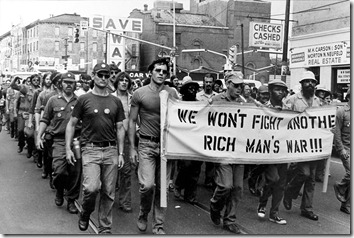 I had the same feelings as everyone else at that time, but even in the immediate aftermath, something about that statement nagged at me. It was so clearly false. We are obviously hated because only an incredibly intense hatred could inspire people to such unspeakable horrors. But was that the sole reason for that hatred, that we love freedom? Surely, there was more to it that than that.
I had the same feelings as everyone else at that time, but even in the immediate aftermath, something about that statement nagged at me. It was so clearly false. We are obviously hated because only an incredibly intense hatred could inspire people to such unspeakable horrors. But was that the sole reason for that hatred, that we love freedom? Surely, there was more to it that than that.
Another writer seems to have his finger on that particular pulse. Even before September 11, 2001, a former lieutenant colonel in the U.S. Air Force, Robert Bowman, was writing on this very subject. In an article in the National Catholic Reporter he had this to say about the roots of terrorism:
“We are not hated because we practice democracy, value freedom, or uphold human rights. We are hated because our government denies these things in Third World countries whose resources are coveted by our multinational corporations. That hatred we have sown has come back to haunt us in the form of terrorism. Instead of sending our sons and daughters around the world to kill Arabs so we can have the oil under their sand, we should send them to rebuild their infrastructure, supply clean water, and feed starving children. In short, we should do good instead of evil. Who would try to stop us? Who would hate us? Who would want to bomb us?”
Unless we embrace that kind of thinking, we will go on sending poor boys to fight rich men’s wars and young widows to plant flowers on their graves. So on this day I don’t want to honor any more soldiers plucked from the very beginning of lives that might have held such promise. I want to honor the peacemakers.
Joseph
.

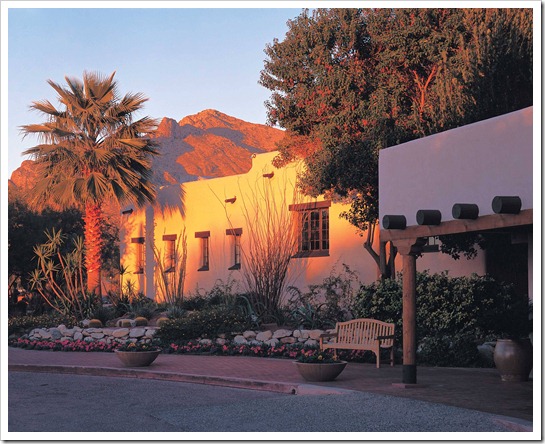
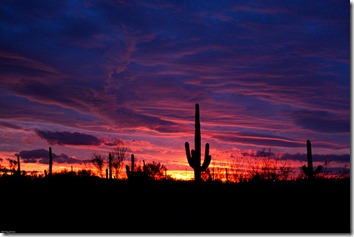 There are times when I’m working when I’m not working at all, and especially so when I am writing. Back in the years when I wrote in longhand and got up at 3:45 every morning to pursue my dreams before leaving for a full day’s work at 8:00 a.m. I would often go into the study with a hot cup of coffee and go right to work on a passage. I would eventually lean back in the chair to read over what I’d written, take a sip of coffee, and be shocked to discover that it was then ice-cold. It’s because I’m so focused. I go to work, and the rest of the world drops away from me. But for all that I love to work at times, I love life much more, and I especially love being with Christine.
There are times when I’m working when I’m not working at all, and especially so when I am writing. Back in the years when I wrote in longhand and got up at 3:45 every morning to pursue my dreams before leaving for a full day’s work at 8:00 a.m. I would often go into the study with a hot cup of coffee and go right to work on a passage. I would eventually lean back in the chair to read over what I’d written, take a sip of coffee, and be shocked to discover that it was then ice-cold. It’s because I’m so focused. I go to work, and the rest of the world drops away from me. But for all that I love to work at times, I love life much more, and I especially love being with Christine.